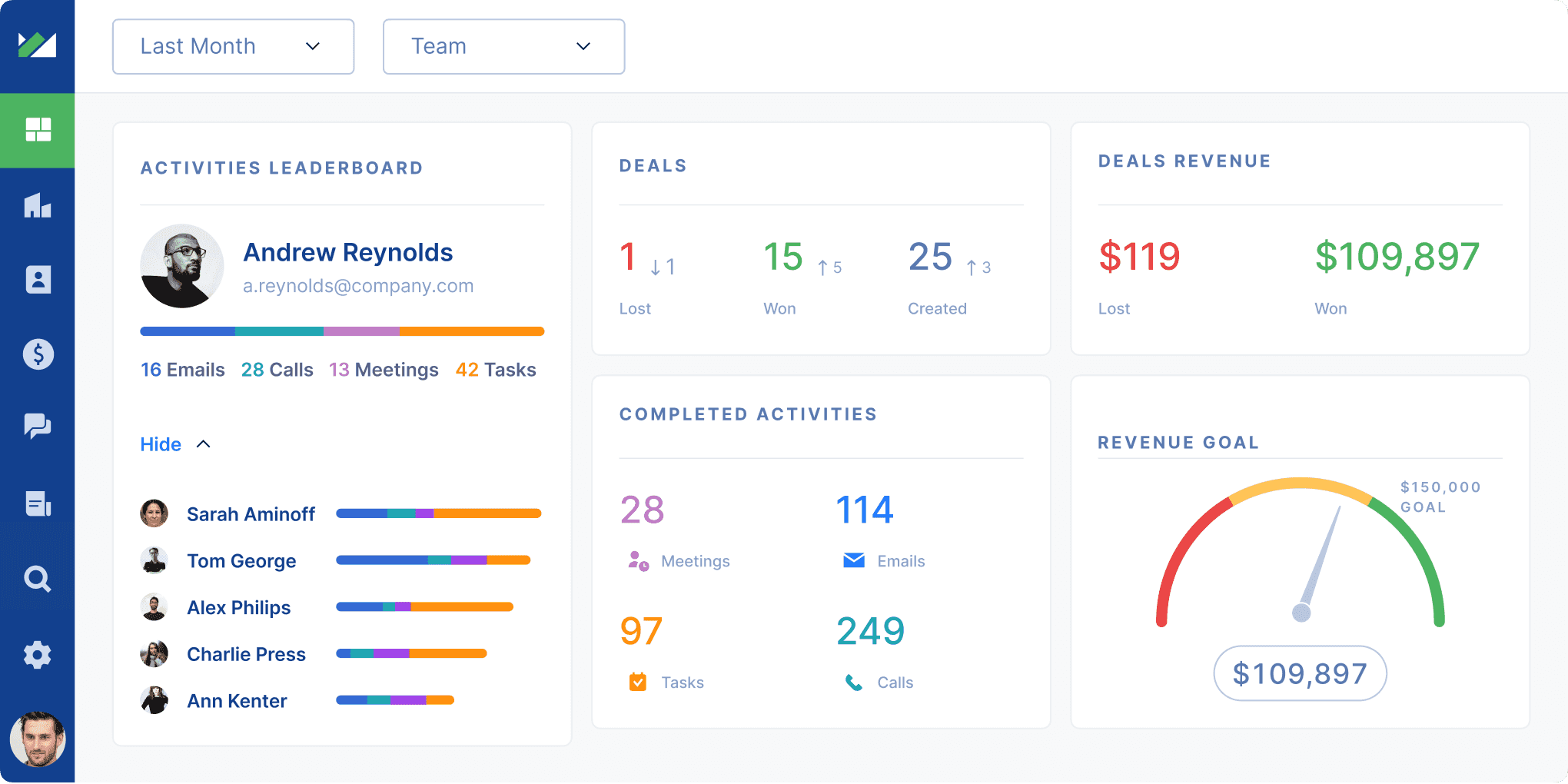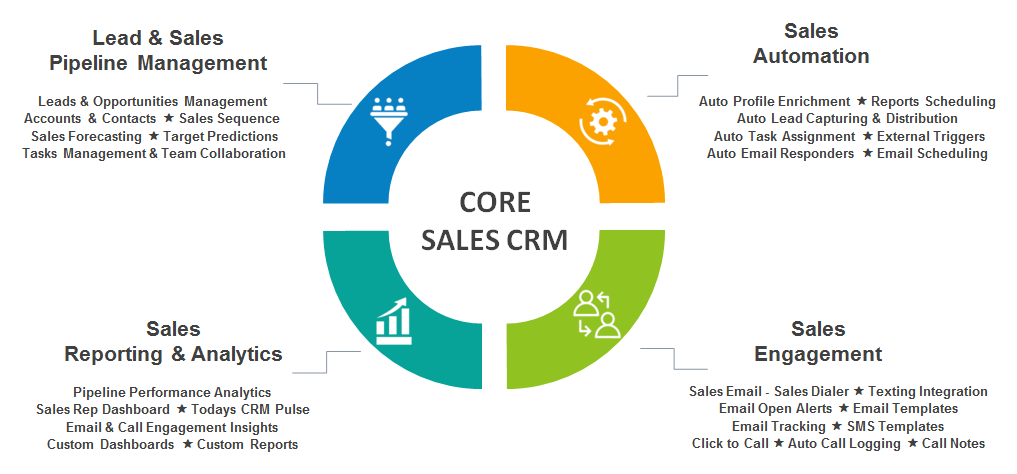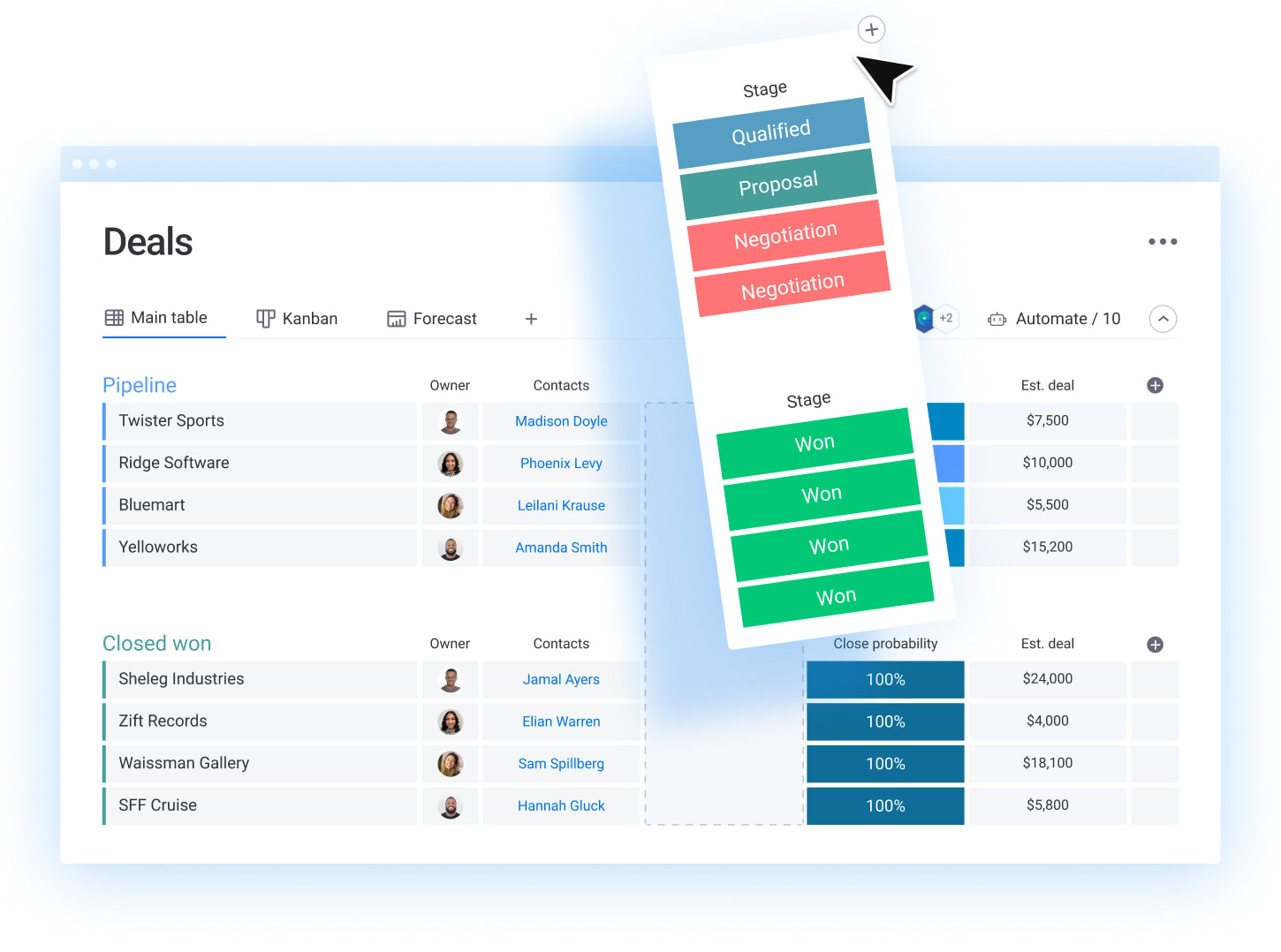Online sales CRM takes center stage in today’s digital landscape, empowering businesses to streamline their sales processes, centralize customer data, and boost efficiency like never before. As a powerful tool for managing customer relationships and driving sales growth, online sales CRM has become an indispensable asset for businesses looking to stay competitive in the modern marketplace.
In this comprehensive guide, we delve into the world of online sales CRM, exploring its key features, benefits, and best practices. Whether you’re a seasoned sales professional or just starting out, this guide will provide you with the knowledge and insights you need to harness the full potential of online sales CRM and achieve sales success.
Online Sales CRM Overview
An online sales CRM (Customer Relationship Management) system is a software solution designed specifically to manage and optimize the sales process for businesses operating primarily online. It provides a centralized platform for managing customer interactions, tracking sales pipelines, and automating various sales-related tasks.
Using an online sales CRM offers several key benefits, including improved customer relationship management, streamlined sales processes, increased sales productivity, and enhanced data analysis and reporting capabilities.
Key Features and Functionalities
- Contact management: Store and organize customer information, including contact details, purchase history, and communication preferences.
- Sales pipeline management: Track the progress of sales opportunities through different stages of the sales funnel.
- Lead management: Capture and qualify potential customers, nurturing them through automated marketing campaigns.
- Email integration: Send and receive emails directly from the CRM, tracking customer interactions and managing email campaigns.
- Reporting and analytics: Generate reports and dashboards to analyze sales performance, identify trends, and make data-driven decisions.
li>Task and activity management: Assign and track tasks, schedule appointments, and manage follow-up activities.
Popular Online Sales CRM Solutions
- Salesforce Sales Cloud
- HubSpot CRM
- Zoho CRM
- Pipedrive
- Freshsales
Benefits of Using an Online Sales CRM

An online sales CRM (Customer Relationship Management) system offers numerous advantages that can significantly enhance sales efficiency. These benefits stem from the centralized management of customer data and the ability to track interactions, providing valuable insights that drive informed decision-making and streamline sales processes.
Improved Sales Efficiency
- Automated workflows:Online sales CRMs automate repetitive tasks such as lead generation, email marketing, and scheduling appointments, freeing up sales reps to focus on high-value activities.
- Centralized data:All customer data is stored in a single, accessible location, eliminating the need for manual data entry and reducing the risk of errors.
- Real-time insights:CRMs provide real-time visibility into sales pipelines, allowing managers to monitor progress and identify potential roadblocks.
Centralized Customer Data and Interaction Tracking
Centralizing customer data in an online sales CRM enables sales teams to gain a comprehensive understanding of their customers’ needs, preferences, and purchase history. This information can be used to personalize marketing campaigns, improve customer service, and identify upselling opportunities.
Tracking customer interactions provides valuable insights into customer behavior and preferences. This data can be used to identify trends, improve communication strategies, and develop targeted marketing campaigns that resonate with customers.
Impact of Using an Online Sales CRM
Numerous studies have demonstrated the positive impact of using an online sales CRM. According to a study by Salesforce, companies that use a CRM experience a 29% increase in sales revenue and a 27% increase in customer satisfaction.
Another study by Nucleus Research found that companies that implement a CRM can achieve an average return on investment (ROI) of 524% over three years.
Features of an Online Sales CRM
An online sales CRM is a powerful tool that can help businesses of all sizes streamline their sales processes, improve customer relationships, and increase sales revenue. Essential features of an online sales CRM include lead management, contact management, opportunity tracking, and sales forecasting.
Lead Management
Lead management is the process of capturing, qualifying, and nurturing leads. An online sales CRM can help businesses manage leads by providing a centralized database to store lead information, track lead interactions, and automate lead nurturing campaigns.
- Example: A business can use an online sales CRM to capture leads from its website, trade shows, and social media campaigns. The CRM can then track lead interactions, such as email opens, website visits, and phone calls. This information can be used to qualify leads and determine which leads are most likely to convert into customers.
Contact Management
Contact management is the process of managing relationships with customers and prospects. An online sales CRM can help businesses manage contacts by providing a centralized database to store contact information, track contact interactions, and manage customer accounts.
- Example: A business can use an online sales CRM to store contact information for customers, prospects, and partners. The CRM can then track contact interactions, such as email correspondence, phone calls, and meetings. This information can be used to build stronger relationships with customers and prospects.
Opportunity Tracking, Online sales crm
Opportunity tracking is the process of tracking the progress of sales opportunities. An online sales CRM can help businesses track opportunities by providing a centralized database to store opportunity information, track opportunity progress, and forecast sales revenue.
- Example: A business can use an online sales CRM to track the progress of sales opportunities. The CRM can then provide insights into the sales pipeline, such as the number of opportunities in each stage, the average sales cycle length, and the expected close date for each opportunity.
Sales Forecasting
Sales forecasting is the process of predicting future sales revenue. An online sales CRM can help businesses forecast sales by providing a centralized database to store historical sales data, track current sales trends, and forecast future sales revenue.
- Example: A business can use an online sales CRM to forecast sales revenue. The CRM can then provide insights into future sales performance, such as the expected sales revenue for the next quarter or year. This information can be used to make informed decisions about sales staffing, marketing campaigns, and product development.
Choosing the Right Online Sales CRM
Selecting the optimal online sales CRM requires careful consideration of several key factors. These include evaluating the features offered, pricing models, and the quality of customer support provided.
Features
Consider the specific features that are essential for your sales team. These may include:
- Contact management
- Lead tracking
- Opportunity management
- Sales forecasting
- Reporting and analytics
Pricing
Compare the pricing models of different CRM solutions. Consider factors such as:
- Subscription fees
- User limits
- Storage limits
- Additional costs for features or integrations
Customer Support
Assess the quality of customer support offered by each CRM vendor. Consider factors such as:
- Availability (24/7, weekdays only, etc.)
- Response times
- Support channels (phone, email, chat, etc.)
- Knowledge base and documentation
Comparison Table
The following table provides a comparison of popular online sales CRM solutions based on key criteria:
| CRM Solution | Features | Pricing | Customer Support |
|---|---|---|---|
| Salesforce | Comprehensive features, including lead scoring, opportunity management, and sales forecasting | Subscription-based, with multiple pricing tiers | 24/7 support via phone, email, and chat |
| HubSpot CRM | Free tier available, with paid tiers offering advanced features | Subscription-based, with user limits and storage limits | 24/7 support via email and chat, paid support for phone support |
| Zoho CRM | Wide range of features, including marketing automation and social media integration | Subscription-based, with multiple pricing tiers | 24/7 support via phone, email, and chat |
Implementing an Online Sales CRM

Implementing an online sales CRM is a crucial step towards optimizing your sales process. It involves several key stages to ensure a smooth and successful transition.
Data Migration
Data migration is essential for transferring existing customer data from your old system to the new CRM. This process requires careful planning and execution to maintain data integrity and minimize disruption.
User Training
Proper user training is vital for ensuring that your team can effectively utilize the CRM. Training should cover all aspects of the system, including navigation, data entry, and reporting.
Ongoing Support
Ongoing support is necessary to ensure that your CRM remains up-to-date and functioning optimally. This may include regular software updates, technical assistance, and user support.
Implementation Timeline
A well-defined implementation timeline is essential for successful CRM implementation. It should include milestones, such as:
- Planning and data gathering
- System configuration and data migration
- User training and testing
- Go-live date
- Ongoing monitoring and support
Best Practices for Using an Online Sales CRM

An online sales CRM can be a powerful tool for managing your sales process and improving your customer relationships. However, it is important to use your CRM effectively to get the most out of it. Here are some best practices for using an online sales CRM:
Lead Qualification
Qualifying your leads is essential for identifying the most promising opportunities. Use your CRM to track the following information about your leads:
- Company name
- Contact information
- Industry
- Job title
- Pain points
- Budget
Once you have qualified your leads, you can prioritize your sales efforts and focus on the most likely to convert.
Opportunity Management
Once you have qualified a lead, you need to create an opportunity in your CRM. An opportunity represents a potential sale. Use your CRM to track the following information about your opportunities:
- Opportunity name
- Customer name
- Sales stage
- Expected close date
- Amount
Your CRM can help you track the progress of your opportunities and identify any potential roadblocks.
Customer Relationship Building
A CRM can also be used to build relationships with your customers. Use your CRM to track the following information about your customers:
- Purchase history
- Support interactions
- Feedback
This information can help you understand your customers’ needs and build stronger relationships with them.
Examples of Successful CRM Usage
Here are some examples of how businesses have successfully used CRM:
- Salesforce: Salesforce is a leading provider of CRM software. They have helped businesses of all sizes improve their sales performance.
- HubSpot: HubSpot is a marketing and sales software company. They have helped businesses generate more leads and close more deals.
- Zoho CRM: Zoho CRM is a cloud-based CRM software. They have helped businesses improve their customer service and increase their sales.
These are just a few examples of how businesses have successfully used CRM. By following the best practices Artikeld above, you can also use CRM to improve your sales performance and build stronger customer relationships.
Last Recap
In conclusion, online sales CRM has emerged as a game-changer for businesses seeking to optimize their sales performance. By embracing the power of CRM technology, businesses can gain a competitive edge, foster stronger customer relationships, and drive revenue growth. As the digital landscape continues to evolve, online sales CRM will undoubtedly remain a cornerstone of sales success, empowering businesses to navigate the challenges and seize the opportunities that lie ahead.